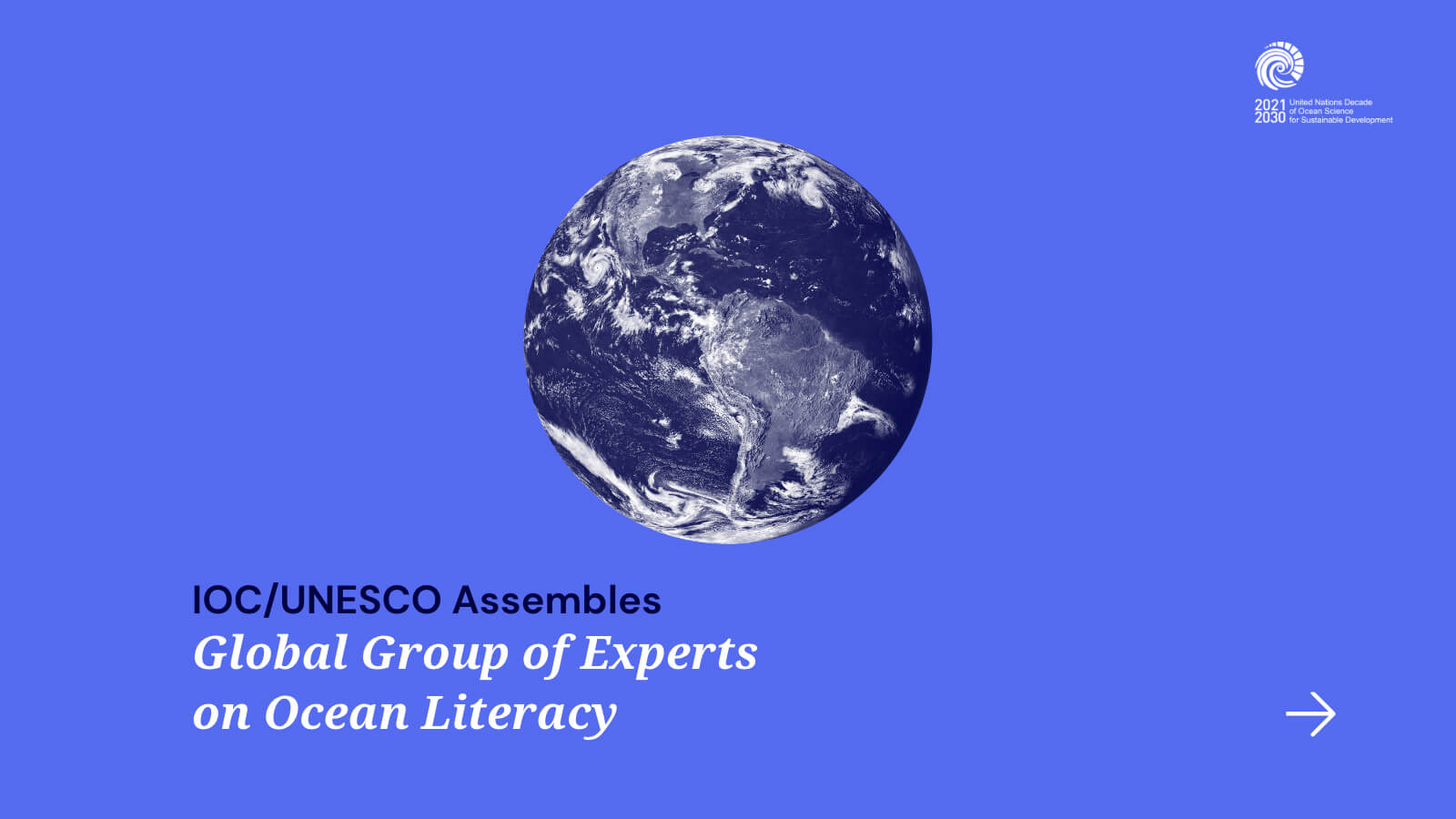UNESCO has established an international Group of Experts on Ocean Literacy, with 20 members from diverse disciplines, stakeholder groups, geographical regions, and with a focus on gender balance.
UNESCO’s Intergovernmental Oceanographic Commission (IOC/UNESCO) selected for its new Group of Experts on Ocean Literacy 20 renowned professionals from diverse and relevant disciplines and interested parties, reflecting the multi-stakeholder nature of ocean literacy and taking into consideration geographical and gender balance.
Experts were selected following a call to Member States and partner organisations and suggestions from the IOC/UNESCO Secretariat. The Group has yet to elect a Chair and Vice-Chair to guide its activities together with the Secretariat.
“Ocean Literacy is a fundamental tool to advance ocean sustainability. The IOC/UNESCO is becoming a leading force in promoting Ocean Literacy across different regions and countries,” said Francesca Santoro, Senior Programme Officer for Ocean Literacy at the IOC-UNESCO Secretariat. “We look forward to working with the Group of Experts to bring their diverse expertise together with different perspectives and approaches.”
The Group of Experts will provide guidance in the scoping, implementation and monitoring of the IOC/UNESCO Ocean Literacy portfolio of activities, specifically in relation to:
1 – Defining good practices in Ocean Literacy based on lessons learned in Member States;
2 – Developing Ocean Literacy global and regional programmes guided by the IOC Ocean Literacy Plan of Action (IOC/A-31/3.5.4.Doc) and the Ocean Literacy Framework of Action for the UN Decade of Ocean Science (IOC/INF-1400);
3 – Coordinating Ocean Literacy networks at regional, national and local levels;
4 – Identifying modalities for the mobilisation of financial and in-kind resources to enable the implementation of global and regional Ocean Literacy activities;
5 – Identifying synergies with relevant UNESCO Sectors, international organizations, academic institutions, NGOs and private sector associations;
6 – Coordinating Ocean Literacy research activities relevant to the development of tools and methodologies and the assessment of impact of Ocean Literacy initiatives.
In addition, the Group of Experts will provide guidance on the application and possible evolution of the Ocean Literacy Framework of Action for the UN Decade of Ocean Science in coordination with the Decade Advisory Board and the Decade Coordination Unit.
The Group of Experts will produce regular reports and communications to the Ocean Literacy international community through newsletters, side events, and other activities.
Meet the members of the IOC/UNESCO Group of Experts on Ocean Literacy.
***
About the IOC/UNESCO:
The Intergovernmental Oceanographic Commission of UNESCO (IOC/UNESCO) promotes international cooperation in marine sciences to improve management of the ocean, coasts and marine resources. The IOC enables its 150 Member States to work together by coordinating programmes in capacity development, ocean observations and services, ocean science and tsunami warning. The work of the IOC contributes to the mission of UNESCO to promote the advancement of science and its applications to develop knowledge and capacity, key to economic and social progress, the basis of peace and sustainable development.
About the Ocean Decade:
Proclaimed in 2017 by the United Nations General Assembly, the UN Decade of Ocean Science for Sustainable Development (2021-2030) (‘the Ocean Decade’) seeks to stimulate ocean science and knowledge generation to reverse the decline of the state of the ocean system and catalyse new opportunities for sustainable development of this massive marine ecosystem. The vision of the Ocean Decade is ‘the science we need for the ocean we want’. The Ocean Decade provides a convening framework for scientists and stakeholders from diverse sectors to develop the scientific knowledge and the partnerships needed to accelerate and harness advances in ocean science to achieve a better understanding of the ocean system, and deliver science-based solutions to achieve the 2030 Agenda. The UN General Assembly mandated UNESCO’s Intergovernmental Oceanographic Commission (IOC) to coordinate the preparations and implementation of the Decade.
